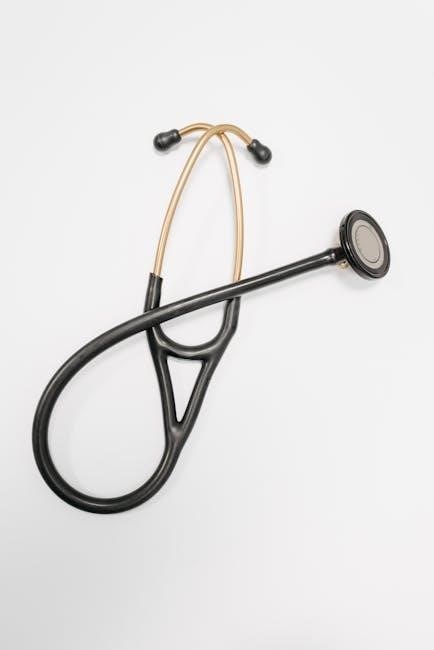Accelerated nursing programs offer international medical graduates a pathway to transition into nursing careers through intensive, condensed curricula, enabling them to leverage their prior medical education and experience efficiently.
1.1 Overview of Accelerated Nursing Programs
Accelerated nursing programs are designed for individuals with non-nursing bachelor’s degrees, offering a fast-track path to a nursing career. These intensive programs condense coursework and clinical training, enabling students to earn a degree in 12-18 months. They focus on essential nursing skills and knowledge, blending theoretical learning with hands-on experience. Eligibility typically requires a bachelor’s degree and prerequisite courses. These programs are ideal for international medical graduates seeking to transition into nursing, providing a structured and efficient route to licensure and practice.
1.2 Benefits for International Medical Graduates
Accelerated nursing programs offer international medical graduates a streamlined pathway to transition into nursing careers. Their prior medical education and clinical experience provide a strong foundation, enabling them to adapt quickly to nursing concepts. These programs allow them to leverage their existing knowledge while gaining new skills, making them highly competitive in the U.S. healthcare job market. Additionally, the condensed curriculum saves time and resources, while the focus on hands-on training prepares them for diverse clinical settings and leadership roles in nursing.

Admission Requirements for International Applicants
Admission requires academic prerequisites, English proficiency, and documentation like transcripts and visa approval, ensuring eligibility for accelerated nursing programs tailored for international medical graduates.

2.1 Academic Prerequisites and Eligibility Criteria
International applicants must meet specific academic requirements, including completing prerequisite courses like anatomy, physiology, chemistry, and nutrition. A minimum CGPA of 3.0 is often required. Proficiency in English, verified through exams like TOEFL or IELTS, is mandatory. Additionally, some programs require TEAS or HESI entrance exams. Official transcripts and evaluations of foreign credentials, often through NACES, are necessary. Competitive applicants typically demonstrate strong academic performance and relevant healthcare experience, ensuring readiness for rigorous accelerated programs.
2.2 English Language Proficiency and Visa Requirements
International applicants must demonstrate English proficiency through exams like TOEFL or IELTS, with minimum scores set by the institution. Visa requirements include obtaining an I-20 form after admission and securing an F-1 student visa. Applicants must provide proof of financial support and complete a visa interview. Institutions often assist with visa processes, but applicants should research specific requirements early. Meeting these criteria ensures compliance with immigration regulations and smooth enrollment in accelerated nursing programs.

Curriculum and Program Structure
Accelerated nursing programs combine intensive theoretical study with hands-on clinical training, designed to build on prior medical knowledge, enabling efficient completion of the nursing curriculum.
3.1 Overview of the Accelerated Nursing Curriculum
The accelerated nursing curriculum is designed to build on prior medical knowledge, offering a condensed yet comprehensive education. It typically includes foundational courses in anatomy, physiology, and pharmacology, followed by advanced topics like patient assessment and nursing interventions. Clinical rotations in diverse healthcare settings, such as hospitals and community clinics, provide hands-on experience. The curriculum emphasizes critical thinking, evidence-based practice, and cultural competence, preparing graduates to meet the demands of modern nursing professionals.
3.2 Clinical Training and Hands-On Experience

Clinical training is a cornerstone of accelerated nursing programs, providing students with hands-on experience in real-world healthcare settings. These rotations occur in hospitals, clinics, and community centers, allowing students to apply theoretical knowledge in practical scenarios. Under the supervision of experienced nurses and healthcare professionals, students develop essential skills in patient care, medical procedures, and decision-making; This immersive learning enhances their ability to adapt to diverse clinical environments and prepares them for the demands of nursing practice. The clinical component is tailored to build confidence and competence in delivering high-quality patient care.

Career Opportunities After Graduation

Graduates of accelerated nursing programs can pursue diverse roles in hospitals, clinics, and specialty care settings, with opportunities for advancement as nurse practitioners, educators, or healthcare leaders.
4.1 Job Prospects for International Nursing Graduates
International nursing graduates from accelerated programs often secure roles in high-demand settings like hospitals, clinics, and long-term care facilities. With strong clinical skills and adaptability, they excel in diverse healthcare environments. Many find opportunities as registered nurses, while others pursue specialized roles such as nurse practitioners or critical care nurses. The global nursing shortage further enhances their employability, making them valuable assets to healthcare systems worldwide.
4.2 Professional Growth and Specialization Options
Graduates from accelerated nursing programs can pursue diverse specializations, such as critical care, pediatrics, or gerontology. They may also opt for advanced certifications like CCRN or CPN, enhancing their expertise. Additionally, many choose to further their education through MSN programs, leading to roles like nurse practitioners or educators. This versatility allows international graduates to tailor their careers to their interests and strengths, ensuring continuous professional growth in the dynamic healthcare field.
Challenges Faced by International Students
International students encounter cultural and language barriers, academic rigor, and visa challenges, requiring adaptation and resilience to excel in accelerated nursing programs.
5.1 Cultural and Language Barriers
International students often face cultural and language barriers, which can hinder their academic and clinical performance in accelerated nursing programs. Language proficiency challenges may affect communication with patients and peers, while cultural differences can lead to misunderstandings or feelings of isolation. Additionally, the intensity of these programs can amplify the stress of adapting to a new cultural and linguistic environment, requiring students to develop strong coping mechanisms and seek support systems to thrive.
5.2 Academic Rigor and Time Management
Accelerated nursing programs are highly demanding, requiring international medical graduates to balance intensive theoretical learning with hands-on clinical training. The condensed curriculum leaves little room for error, necessitating exceptional time management skills. Students must prioritize tasks, manage their workload effectively, and maintain focus to keep up with the fast-paced learning environment; Additionally, the pressure to master complex medical concepts and apply them in real-world settings can be overwhelming, making efficient study habits and stress management essential for success.

Financial Aid and Scholarship Opportunities
Financial aid and scholarships provide crucial support for international students in accelerated nursing programs, offering opportunities through institutional grants, external scholarships, and federal loan options tailored to their needs.
6.1 Available Scholarships and Grants
International medical graduates in accelerated nursing programs can access various scholarships and grants to support their education. These include institutional scholarships, private foundation grants, and diversity awards. Some universities offer merit-based and need-based scholarships specifically for international students. Additionally, organizations like the Nurse Corps Scholarship Program provide financial assistance in exchange for service commitments. External funding opportunities, such as the Fulbright Program or country-specific scholarships, also exist. These resources help alleviate financial burdens and enable students to focus on their nursing studies.
6.2 Loan Options and Financial Planning
International students in accelerated nursing programs can explore federal and private loan options to fund their education. The Free Application for Federal Student Aid (FAFSA) determines eligibility for federal loans. Private lenders also offer loans, often requiring a cosigner. Some institutions provide payment plans or emergency loans. Financial planning is crucial, with tools like budgeting worksheets and financial counseling available; Students should compare interest rates and repayment terms to choose the most suitable option, ensuring they can manage their debt post-graduation effectively.
Success Stories and Case Studies
Many international medical graduates have successfully transitioned into nursing careers through accelerated programs, demonstrating resilience and dedication. Their stories highlight the transformative impact of these programs on their professional lives.
7.1 Real-Life Examples of Successful Graduates
Graduates like Dr. Maria, a former physician from Latin America, successfully transitioned into nursing through an accelerated program. She now works as a critical care nurse, leveraging her medical background to excel in high-pressure environments. Similarly, John, a graduate from Asia, utilized the program to become a pediatric nurse practitioner, emphasizing how the curriculum’s intensity prepared him for the demands of modern healthcare; These stories underscore the program’s effectiveness in fostering career transformation and professional growth for international medical graduates.

Tips for Applying to Accelerated Nursing Programs
Research program prerequisites, ensure English proficiency, and understand visa requirements to prepare a strong application tailored to accelerated nursing programs for international medical graduates.
8.1 Choosing the Right Program
When selecting an accelerated nursing program, consider factors like accreditation, curriculum alignment with your goals, clinical training opportunities, and support for international students. Ensure the program is tailored to your medical background and offers flexible scheduling. Research the program’s reputation, faculty expertise, and alumni success rates. Additionally, evaluate the location, cost, and duration to find a program that fits your career aspirations and personal circumstances, ensuring a smooth transition into nursing practice.
8.2 Preparing a Strong Application
To prepare a strong application, ensure all academic transcripts, including those from your medical education, are submitted with proper translations. Highlight relevant coursework and clinical experience. Secure strong letters of recommendation from academic or professional mentors. Craft a compelling personal statement outlining your motivation for transitioning to nursing and your career goals. Prepare for potential interviews by practicing common questions and demonstrating your passion for the field. Ensure all documents, including proof of English proficiency and visa requirements, are completed accurately and submitted on time to strengthen your application.

Program Variations and Specializations
Accelerated nursing programs vary, offering specializations like pediatric, critical care, or gerontological nursing, allowing international graduates to tailor their education to specific career interests and patient populations.
9.1 Different Types of Accelerated Nursing Programs
Accelerated nursing programs for international medical graduates include various options such as the Accelerated Bachelor of Science in Nursing (ABSN), Master’s Entry to Practice Nursing (MEPN), and BSN-to-MSN programs. These programs are designed for individuals with prior degrees, allowing them to earn a nursing degree in a condensed timeframe, typically 12-24 months. They often include specialized tracks like critical care, pediatric nursing, or gerontology, enabling graduates to pursue specific career paths. These programs are tailored to build on the student’s existing medical knowledge and experience, making them highly efficient and focused.
Accelerated nursing programs for international medical graduates provide a pathway to transition into the nursing profession, offering a condensed yet comprehensive education. These programs are designed to build on prior medical knowledge, enabling graduates to quickly gain the skills and qualifications needed to become licensed nurses. With a focus on clinical experience and hands-on training, these programs open doors to rewarding careers in healthcare, allowing graduates to make a meaningful impact in patient care and contribute to the nursing workforce globally.

